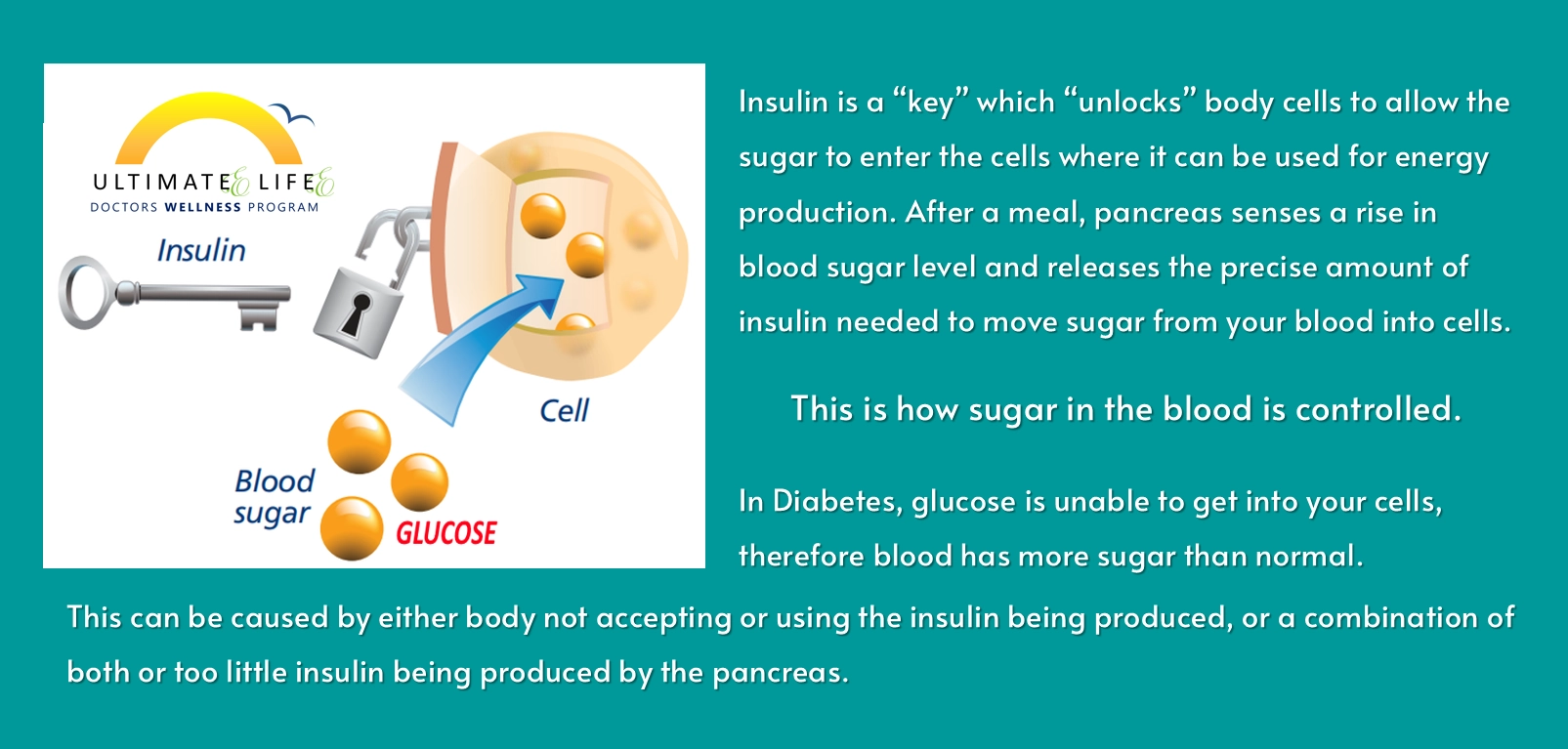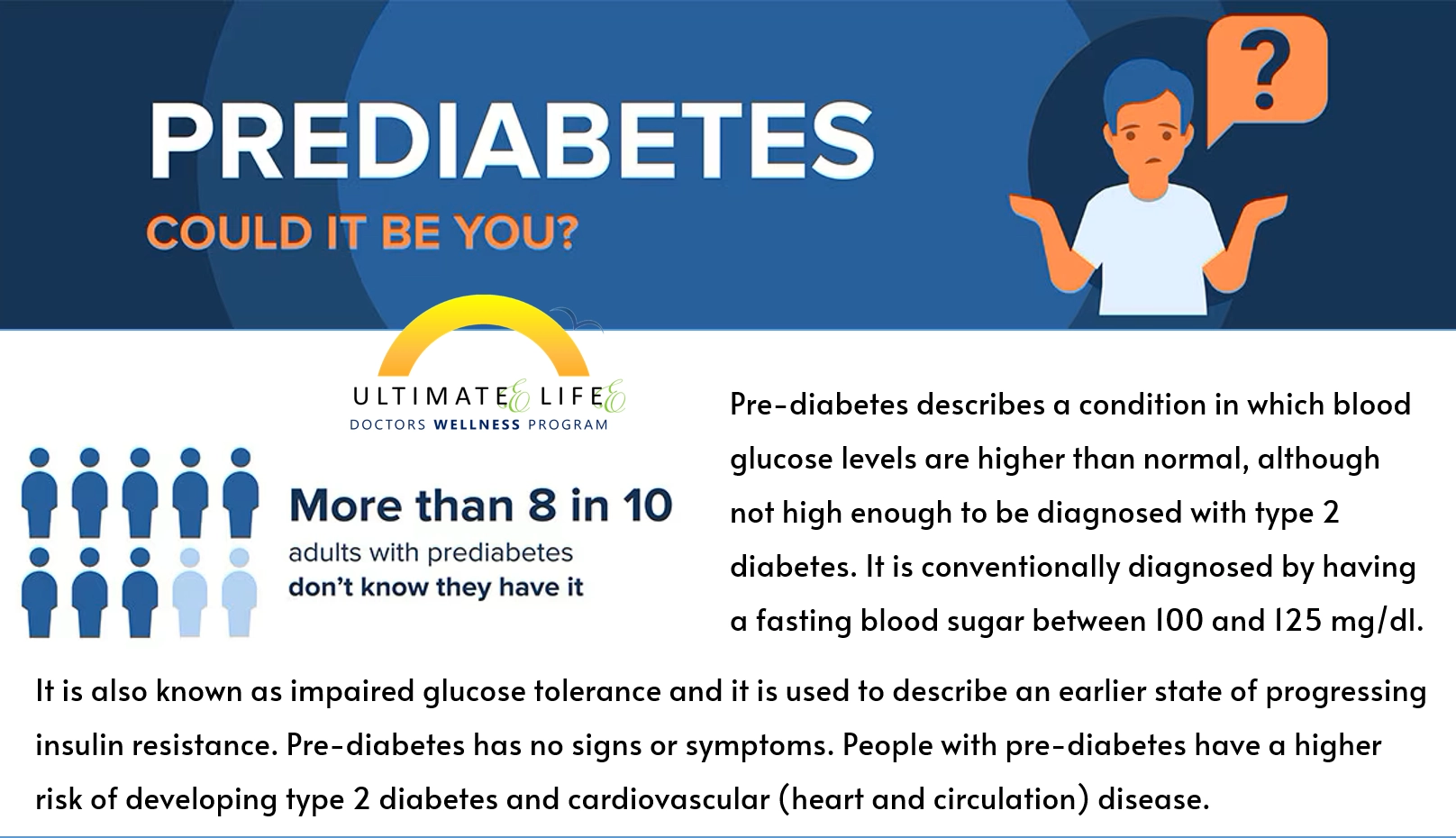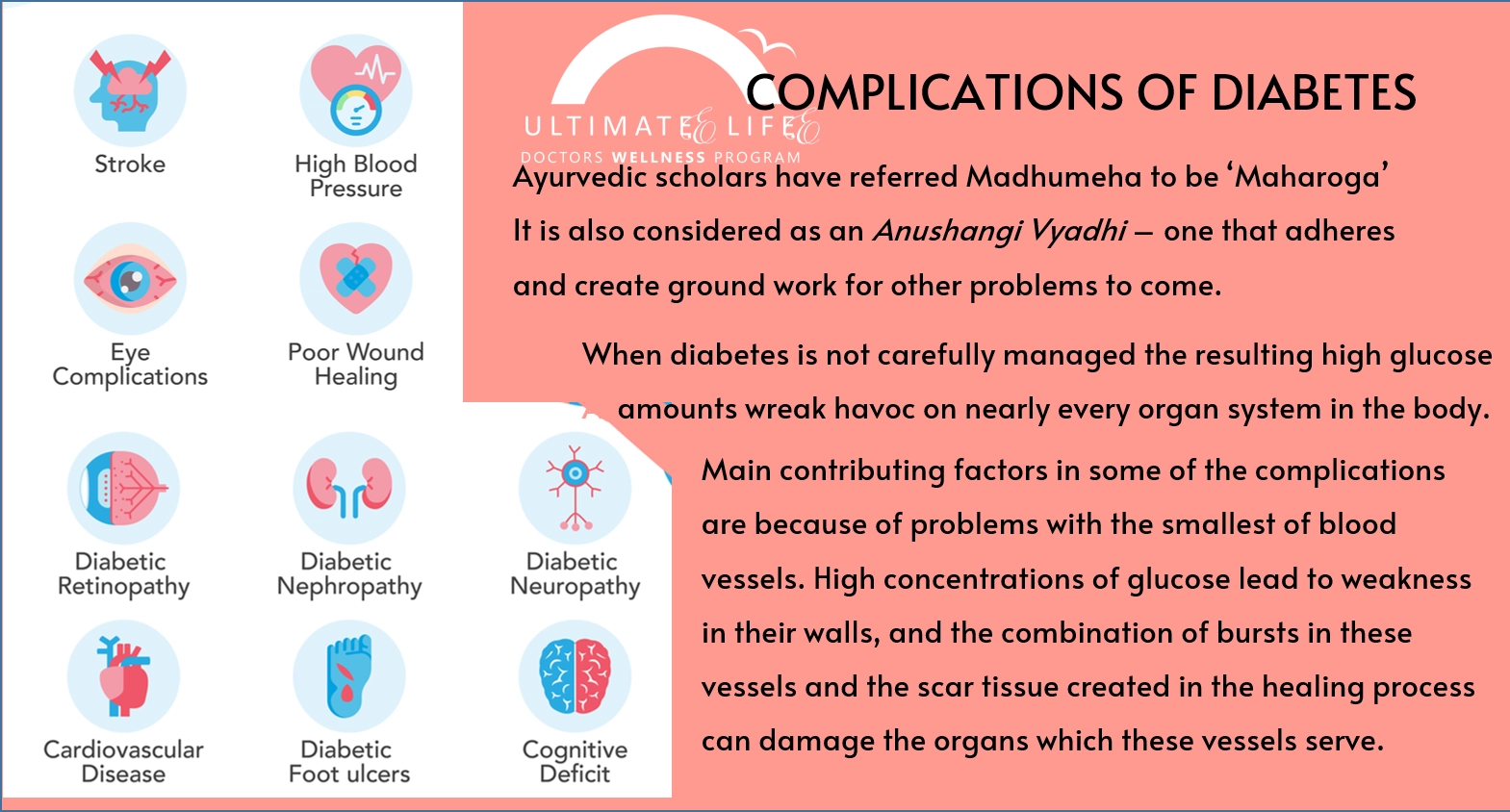Diabetes Management

Diabetes Management
Diabetes or Diabetes Mellitus is a condition when too much sugar is circulating in your bloodstream.
The most important source of energy for your body is a simple sugar called glucose, also known as blood sugar, which is absorbed in blood after a meal. Blood sugar then travels throughout the bloodstream to be used by body cells as fuel for energy production.
The pancreas, a gland located behind the stomach, is in control of releasing hormones that tell the body whether to store this fuel for the future or release energy for your body. One of these hormones, Insulin, is essential for enabling the body to use blood sugar and preventing a build-up of blood sugar in the bloodstream.

What Insulin does?
Insulin is a “key” which “unlocks” body cells to allow the sugar circulating in the blood to enter the cells where it can be used in energy production. After a meal, the pancreas senses a rise in your blood sugar level and releases the precise amount of insulin needed to move sugar from your blood into your cells.
So, what happens in Diabetes?
In Diabetes, Insulin is not able to do its job. Meaning, glucose is unable to get into your cells, which causes it to build up in the blood. High levels of glucose then circulate through the body, damaging cells along the way. This can be caused by either too little insulin being produced by the pancreas or the body not accepting or using the insulin it produces, or a combination of both.
There are several forms of diabetes but the main ones are Type 1 (Juvenile onset) and Type 2 (Adult onset) diabetes which most of us are aware of.
Type 1 Diabetes needs Insulin to control the blood sugar whereas Type 2 Diabetics can manage their health by modifying Food, Lifestyle and with support of herbs which are specific to their health needs.
Type 2 diabetes involves a lack of sensitivity of body cells to insulin and the subsequent inability of the body to regulate blood glucose levels
Having diabetes means you already have the disease.
But what if we can prevent the onset of diabetes?
Type 2 diabetes doesn’t happen overnight, usually it start as error in sugar metabolism. If these errors are not managed timely, can lead to full blown diabetes.

# PRE-DIABETES / IMPAIRED GLUCOSE TOLERANCE
Pre-diabetes describes a condition in which blood glucose levels are higher than normal, although not high enough to be diagnosed with type 2 diabetes. It is conventionally diagnosed by having a fasting blood sugar between 100 and 125 mg/dl.
It is also known as impaired glucose tolerance and it is an earlier state of progressing insulin resistance. Pre-diabetes often has no specific signs or symptoms.
But Pre-diabetes in itself is a warning sign. By identifying the causative factors and corrections in lifestyle and diets it can be reversed. But if ignored, people with pre-diabetes have a higher risk of developing Type 2 Diabetes and Cardiovascular (Heart and Circulation) Disease.
# INSULIN RESISTANCE
Sometimes the body cells stop responding to the insulin like they are supposed to. In other words, they become “resistant” to the insulin. This condition is termed Insulin Resistance.
When this happens, the pancreas starts producing even more insulin to bring the blood sugar levels down. This leads to high insulin levels in the blood, termed hyperinsulinemia.
This condition may continue to develop for a long time and the body cells become increasingly more insulin resistant. Thus, both insulin in blood and blood sugar levels go up. This increased blood sugar is handled by Liver - typically producing more triglycerides resulting in increased weight and fatty liver.
Gradually, the pancreas may not be able to keep up anymore and the cells in the pancreas get exhausted and may become damaged.
This leads to decreased insulin production, now with low amounts of insulin and ongoing insulin resistance, we see skyrocketing blood sugar levels. In fact, this is a simplified version of how type 2 diabetes develops.
Another reason is the increased amount of fats in the blood. High amounts of free fatty acids in the blood cause cells, such as muscle cells, to stop responding properly to insulin. The main cause of elevated free fatty acid is poor eating, weight gain and obesity and they are all strongly associated with insulin resistance. Having increased visceral fat around the organs and free fatty acids in the blood can release inflammatory hormones that drive insulin resistance.
Although normal weight or thin people can also be insulin resistant but it is much more common among those who are overweight.
Insulin resistance may cause a variety of diseases, including Heart Disease, Non- Alcoholic Fatty Liver Disease, Polycystic Ovarian Syndrome, Alzheimer’s disease and Cancer. Insulin resistance affects 50 -70 percent of women with PCOS, and when left untreated, this can increase the risk for metabolic syndrome, hypertension, dyslipidemia, glucose intolerance and diabetes down the road.

# METABOLIC SYNDROME
As insulin resistance progresses in the body, the liver makes too much sugar and fat, and skeletal muscles are less able to use them. This causes an increase in sugar and fat in the bloodstream which leads to high triglyceride levels and increased body fat--especially abdominal fat, and higher blood pressure.
Metabolic syndrome is a group of risk factors associated with type 2 diabetes, heart disease and other problems. The symptoms are high blood triglycerides, low HDL levels, elevated blood pressure, central obesity (belly fat) and high blood sugar.
Complications of Diabetes can range from sudden, urgent issues to those that develop slowly over the years. These complications include, but are not limited to: Heart Disease and Stroke, Vision Loss and Blindness (Diabetic Retinopathy), Kidney Failure (Diabetic Nephropathy), Amputation (Diabetic Neuropathy), Diabetic Coma (Non-Ketotic Coma), Diabetic Ketoacidosis.
DIABETES IN AYURVEDA
Ayurveda attributes multi-factorial etiology for Diabetes. It includes imbalances within the body's doshas, particularly the Kapha and Vata doshas.
In ayurveda 20 types of “Prameha” are described which denote a group of pathologies characterised by polyuria and turbidity of urine. Prediabetes, metabolic syndrome, Insulin resistance, early Diabetes and kidney diseases such as nephrotic syndrome and others are considered as variants which are mostly correlated with Prameha.
All Prameha, if not treated and managed properly, finally culminates in Madhumeha which can be correlated with chronic Diabetes Mellitus. Here, apart from high blood sugar, we also find “Dhatu Kshaya” or progressive degeneration in functioning of various organs. This can be correlated with diabetes complications like nephropathy, neuropathy, increased CVD problems and others.
In today’s fast paced lives with more mental work, persistent work pressure and workplace stress with little or no exercise, untimely eating and having food that just the taste buds having little nutrition, hooked to screen and not getting enough rest, not getting a chance to unwind physically - all the more so mentally, are some of most important modifiable Lifestyle factors contributing to all major illnesses including diabetes. If a person has a hereditary predisposition, these factors hastens the development of the disease at an early age.
The presentation of Diabetes is marked by tell-tale signs including unquenchable thirst, frequent urination, inexplicable weight loss, fatigue, and hazy vision. However, it's imperative to recognise that these manifestations can manifest diversely among individuals.
WHEN INDIVIDUALS ARE DIFFERENT, WHY ISN’T YOUR TREATMENT?
Ayurveda believes that every individual is different in terms of its genetic makeup, food habits, habitation, and place of living and also various factors are involved in the development of disease. Therefore the treatment has to be individualised.
Ayurveda provides a treatment agenda that actively engages the individual to participate in their own healing. The goal is to balance the individual’s dosha which helps to eliminate additional stressors on the body and person, enabling them to focus on returning to health.
What do we do?
We believe that each individual is unique, and our treatments are tailored to suit your specific needs. We take a comprehensive approach, combining traditional Ayurveda principles with modern diagnostics to identify the underlying causes.
After a thorough assessment of your health, we design a customised treatment plan for you, incorporating Ayurveda Therapies, Herbs and Dietary recommendations, Lifestyle Modifications. These treatments work synergistically to address the imbalances in the body, improve organ function, enhance vitality and improve health outcomes.
ARE YOU FOLLOWING SOCIAL MEDIA SUGGESTED TREATMENT?
In current time there has been an outbreak of information and misinformation on various online and social media platforms recommending herbs / treatment for diabetes and various disorders. Believing misinformation can influence you to make poor health decisions that can harm you. It creates doubt and uncertainty about the treatment, subsequently delaying health actions or enacting potentially harmful health behaviour.
SOCIAL MEDIA CAN NEVER REPLACE A DOCTOR
Following such recommendations may lead to greater harm than benefit as Ayurveda treatment is always individual centric.
Ayurveda believes that every individual is different in terms of its genetic makeup, food habits, habitation, and place of living and also various factors are involved in the development of disease. Therefore the treatment has to be individualised.
Your treatment depends on your own personal health status and all the herbs suggested on these platforms may not be good for your health status. Herbs are not food that can be eaten daily. They have medicinal properties and most of them are usually recommended for a certain duration.